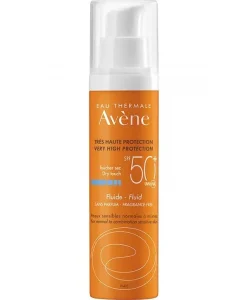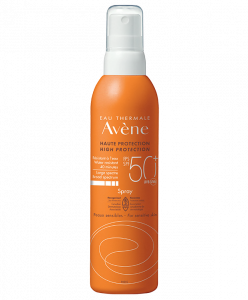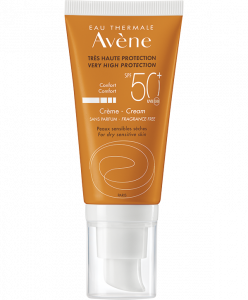
It’s summertime! Summer vacation is here and the hot, sunny weather is in full swing. Now is not the time to be lazy about sun protection.
We all love the warmth of the summer sun. Unfortunately, the sun is also harmful, and many of us underestimate how dangerous it really is. That’s why we reached out to the dermatologist and cosmetologist Dr. Shaimaa Hany to highlight the importance of sun protection and ways to protect yourself from the sun.
What is sun protection?
Sunlight is vital for many important bodily functions, including production of vitamin D and maintenance of your circadian rhythm and mood. Yet too much sunlight can also be harmful. Ultraviolet (UV) rays can cause short- and long-term damage to the skin. That’s why it’s important to use sun protection.
Dr. Shaimaa Hany explains that sun protection is a protective cream that is applied to the skin to protect it from UV rays, pigmentation, cancer, and burns. She adds that a “sun protection factor” (SPF) is the standard for measuring the effectiveness of any sunscreen, which should be between 15 and 50.
Why should you always wear sun protection?
According to Dr. Shaimaa Hany, sun protection is important to save your skin from sunburn, skin cancer, and early aging.
Here are the four main reasons why applying sunscreen should be a daily habit all year long:
1- It protects your skin from UV rays.
The depletion of the ozone layer has increased the risk of damage from harmful UV rays. Sunscreen blocks these rays, which greatly reduces the risk of sunburn. Look for products with an SPF of at least 30, and use them every day.
2- It reduces the risk of skin cancer.
Skin cancer is a very common form of cancer. By applying sunscreen every day, you cut your risk of getting skin cancer in half.
3- It prevents premature aging of the skin.
UV damage causes photoaging of the skin – photoaging is characterized by a thick, leathery appearance, discoloration, and collagen breakdown. This contributes to the appearance of lines, sagging, and wrinkles. Studies show that people under 55 who regularly apply sunscreen are 24% less likely to develop signs of aging than those who do not.
4- It helps maintain an even skin tone.
Sunscreen helps prevent discoloration and dark spots from sun damage, which helps you maintain a smoother, more even skin tone.
How do you protect yourself from the sun?
There are three essential ways to protect your skin from the sun’s harmful rays: avoid the sun, wear sun-protective clothing, and use sunscreen.
1- Avoid the sun
Staying completely out of the sun is an easy way to protect your skin from sun exposure. But who would want to stay indoors all summer? Not to mention that the sun offers important health benefits, such as a better mood. Your best option? Limit direct sun exposure during peak hours, usually considered to be between 10 a.m. and 4 p.m. When outside, look for shaded areas.
2- Wear sun-protective clothing
Cover exposed parts of your skin with protective clothing, such as hats, lightweight long-sleeve shirts, and long pants. Tight-fitting fabrics offer better protection than loose fabrics. Also, be aware that clothing is used in combination with sunscreen, not instead of it.
3- Use sunscreen
Use it every time you step outside. Overwhelmed by all the sunscreen options? A bit of sunscreen knowledge can help.
First, there are two main types of sunscreens, “chemical sunscreens” (organic filters) and “physical sunscreens” (inorganic filters).
*Chemical sunscreens absorb UV rays before they reach your skin. While these are easier to apply and do not leave a white residue, you will need to reapply sunscreen more often when using a chemical sunscreen. Dr. Shaimaa Hany gives ecamsule and silatriazole as examples of compounds.
*Physical sunscreens are mineral compounds that reflect and scatter UV light to protect your skin. These formulas can be harder to spread on your skin and leave white streaks, but they generally last longer than chemical formulas. Dr. Shaimaa Hany lists zinc oxide and titanium dioxide as examples of compounds.
Second, the higher the SPF, the greater the protection against UVB rays. An SPF 15 sunscreen filters out about 93% of UVB rays, an SPF 30 about 97%, and an SPF 50 about 98%. Any additional benefit beyond SPF 50 is insignificant.
Finally, you’ll want a broad-spectrum sunscreen that protects against both UVA and UVB rays.
Now that you’ve got the lowdown, check out some top-tested sun protection creams:
Eau Thermale Avène Very High Protection Fluid SPF 50+: Before exposure to the sun, apply a sufficient quantity of product to the whole face. It is suitable for normal to combination sensitive facial skin.
Eau Thermale Avène Very High Protection Spray SPF 50+: Before exposure to the sun, apply a significant amount of product to the entire body.
Eau Thermale Avène Very High Protection Cream SPF50+: Suitable for dry and sensitive skin on the face.
Are sunscreens safe for use on children?
The answer is yes. Not only are sunscreens safe for children over 6 months of age, but if used regularly during childhood, they can prevent skin cancers later in life. Physical sunscreens are generally the formulations used in children’s sunscreens because they are easier on sensitive skin.
For children under 6 months of age, protective clothing and shade should be used. If these methods are not available, it is recommended to apply a minimal amount of baby sun protection with SPF 15 or higher to areas such as the infant’s face and the back of the hands.
Go ahead and check out this sunscreen for kids from the age of 3 that offers broad-spectrum UV protection.
Eau Thermale Avène Spray for Children SPF 50+: This spray is perfectly suited for children’s sensitive skin. Apply it to the face and body before sun exposure.
What are some sun protection tips?
Dr. Shaimaa Hany puts forward some bottom-line tips for effective sunscreen use:
- Choose one that is appropriate for your skin type.
- Start applying sunscreen 15 minutes before you go out in the sun.
- Reapply your sunscreen every two hours.
- Choose one that does not contain petroleum-based ingredients as they increase oil production.
Other sun protection tips:
- If you suffer from dry skin, choose sunscreen with moisturizing active ingredients.
- Protect your lips with a lip balm that contains sunscreen.
- Drink plenty of water to stay hydrated.
- Don’t forget to apply sunscreen to often neglected areas, such as the tops of your ears and your scalp (especially if your hair is thin or non-existent).
- Women should apply sunscreen under makeup.
Remember, no sunscreen provides 100% protection from the sun. But by taking these extra precautions and following the sun protection guidelines, you can greatly curb your chances for sunburns and skin cancer.
Enjoy the sun!
Last Updated on March 19, 2024













